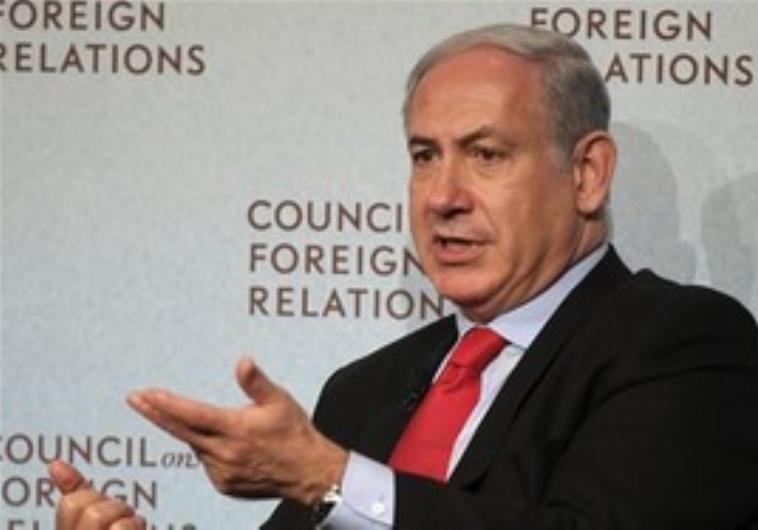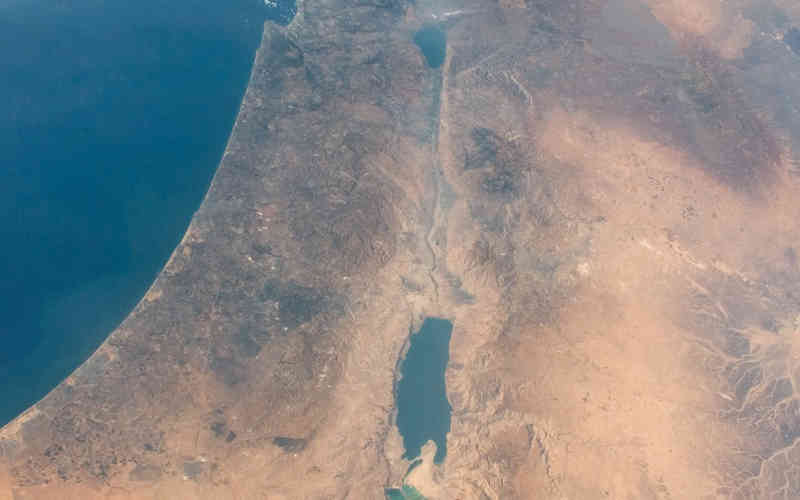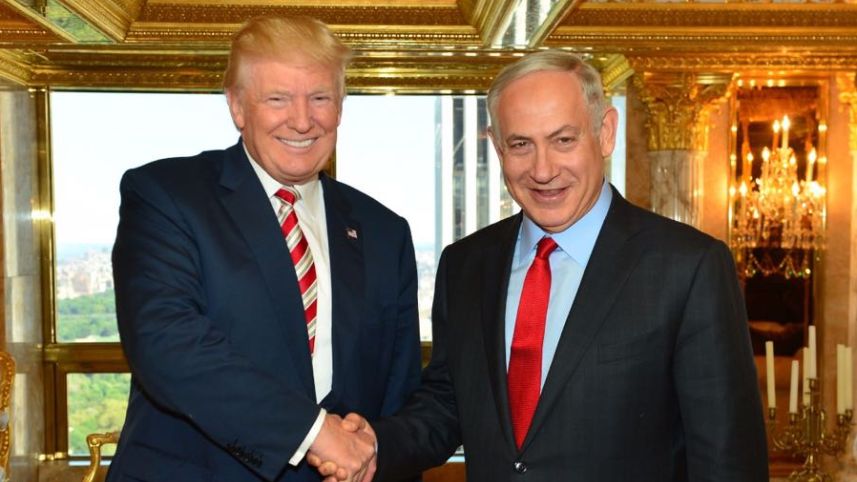Israel’s so-called leaders, in the coalition and the opposition, would like us all to believe that Israel must live by the sword forever or perish. This has been the basis of Israel’s failed strategic position for 76 years. Now on the basis of that failed strategy, Israel is digging in to remain in Gaza for a long time. Thirty-eight years of occupying Gaza from 1967 until 2005 wasn’t long enough to teach Israel any lesson.
The unilateral disengagement from Gaza by Israel after Prime Minister Sharon refused to coordinate the transfer of Gaza to the Palestinian Authority or, God forbid, negotiate with Mahmoud Abbas on the establishment of a Palestinian state next to Israel in two phases starting with Gaza, was another abysmal failure of Israeli policies. The unilateral disengagement by Israel empowered Hamas and every Arab in the world will tell you that Israel ran away from Gaza because of constant Hamas attacks.
The narrative of violence dominated the narrative of failed peacemaking through diplomacy and negotiations. We all know that once Hamas won the elections in 2006, and in 2008 when Mahmoud Abbas and Ehud Olmert, although close to an agreement, failed to reach the final peace destination, Netanyahu was brought back to power and has dominated our lives since then.
When in 2009 Netanyahu returned to power the Netanyahu doctrine went into full force. This is the doctrine of keeping Hamas in power in Gaza while constantly and systematically weakening Mahmoud Abbas and the Palestinian Authority in the West Bank. This was enough for Netanyahu to convince the people of Israel and the world that there is no Palestinian partner for peace and the chances of the two states solution went into a deep coma while Israel deepened and widened the occupation with a massive increase of settlement building and infrastructures of control and domination by Israel. This is the same doctrine that led to October 7, 2023.
In the north of Israel, the Israeli army unilaterally disengaged from Lebanon in 2000 after an 18 years stay costing the lives of hundreds of Israeli soldiers. During that time, Hezbollah grew into a formidable fight force which increased significantly over time. The second Lebanon war in 2006 ended with a sense of loss in Israel but left the north of Israel quiet for 17 years. UN Security Council Resolution 1701 provided a formula for a diplomatic end to the war but over the years the implementation of the Resolution dwindled and the mandate of the UNIFIL forces was less than satisfactory. Since then, Hezbollah has managed to create mutual deterrence with Israel which has so far prevented a full-scale war between Israel and Lebanon.
Now the Israeli (non)strategy is to target Hezbollah assets for each rocket or drone shot over the border from Lebanon. The constant targeted killing of high-ranking Hezbollah officers promises that the north of Israel is continually hit with barrages of rockets and drones that are burning down the entire north of Israel and the south of Lebanon. These targeted killings have nothing strategic about them. They don’t change anything; they are tactical acts of continued madness with no plan for tomorrow. While this continues, tens of thousands of Israelis have become refugees in their own country. This insanity and lack of strategic thinking is present in the backdrop of the statements made by Hezbollah that as soon as there is a ceasefire in Gaza, there will be a ceasefire in the north of Israel. This is what happened during the short ceasefire in November 2023. There can be a diplomatic victory for Israel and Lebanon but only after a new strategy is developed and launched which changes the entire Israeli-Arab dynamic.
For 76 years Israel’s strategy vis-a-vis the Palestinians has been based on the same “Iron Wall” concept proposed by Jabotinsky from 1923. Except after a brief period of the Oslo peace process, until the assassination of Yitzhak Rabin, Israeli policy has never been based on recognizing the legitimacy of the Palestinian right and claim for self-determination. Even Rabin did not come to that conclusion during his lifetime. Over time the failed Israeli strategy changed form but not really its essence. Israeli strategy and policies for decades has been to be in conflict at all times.
The Netanyahu doctrine also was a strategy that guaranteed continued conflict and periodic wars. The one strategy that has never been adopted and tried by Israel is that one of recognizing that the Palestinian people exist and that they too have the right to live as a free nation in their land. There are extremist Palestinians who reject the idea of accepting a state on only 22% of the land that they call Palestine. Just as there are extremist Israeli Jews who reject the idea of accepting that the State of Israel will exist on only 78% of the land that they call the Land of Israel. But there is a potential majority of probably more than 70% of Israelis and Palestinians who would accept this formula if they believed that the other side was sincere about its willingness to live in peace. That is the key – believing that the other side is sincere in its willingness to live in genuine peace.
Just as Oslo began with an attempt at mutual recognition – it was a failed attempt that was not really mutual. Yasser Arafat wrote to Yitzhak Rabin: “The PLO recognizes the right of the State of Israel to exist in peace and security” but Rabin wrote to Arafat: “the Government of Israel has decided to recognize the PLO as the representative of the Palestinian people”. This was not mutual recognition. A new Israeli strategy must begin with mutual recognition which states clearly that both peoples recognize each other’s right to exist in peace and security in a state of its own on the basis of agreed borders between the two states on the land between the River and the Sea.
The realization of the two states solution, learning from the failures of the past is the best way to create a regional defense alliance backed by the United States and probably a who group of other European countries. It is the best way to start on a course of negotiating peace with Lebanon where some minor border disputes are really the only issue in conflict between the two countries. It is also a guaranteed path to full normalization and peace between Israel and Saudi Arabia. It is also the best way to lead to the demilitarization of Gaza, in agreement with the region and the people of Palestine as well as to a non-militarized Palestinian state that will govern both the West Bank, Gaza and East Jerusalem.
Once the mindset of Israel is focused on the strategy of making peace with all of its neighbors rather than constructing more Iron Walls (which can be penetrated as we saw on October 7) we will open up the possibilities of putting a final end to the Israeli-Arab conflict. The heart and soul of the Israeli-Arab conflict since 1948 has always been the Israeli-Palestinian conflict. The Palestinians and most of the Arab neighbors have never really believed that Israel was willing to make peace with the Palestinians. That is true until this very day.
There is no guarantee that the Palestinian people would ever truly agree to make peace with Israel, but they have never really been exposed and challenged by the possibility. For a brief period from September 13, 1993 when the Oslo agreement Declaration of Principles was signed on the White House lawn, young Palestinians who a day before were throwing stones at Israeli soldiers, emerged from the refugee camps and all around the West Bank and Gaza and offered flowers to the Israeli soldiers instead of stones. Shortly afterwards, hundreds of Palestinians who were serving time in Israeli prisoners accused and convicted of terrorism emerged from those prisons and became high officials in the new Palestinian Authority – many of them officers in the Palestinian security forces, working side-by-side by Israeli officers who they fought against. Many of them have close Israeli friend until today.
A good friend of mine, the late Samir Siksik who had been an officer with the rank of Brigadier General in the Palestine Liberation Army was charged by Arafat to enter Gaza in the first wave of Palestinian security officers when the Palestinian Authority was established. Samir was to accompany a number of Armed Personnel Carriers brought from Libya, across Egypt and into Gaza.
When he arrived to Gaza without the APC’s, the Israeli officers asked him what happened – where were the APC’s? Samir explained that they were old and broke down in Sinai. The Israelis asked for their exact location and coordinated with the Multi-National Force in Sinai to pick them up. Samir had never met the enemy face-to-face and he was sure that the Israelis were going to confiscate the APC’s and use them against the Palestinians. Several weeks later, the Israelis called Samir to send people to pick them up. The Israel army repaired the APC’s and returned them probably better than new. Samir was shocked. He told me later “who are these people? Are these the same people we spent years trying to kill?”
Samir became one of the strongest advocates of Israeli-Palestinian peace that I have ever known. Unfortunately, he died of cancer years ago. Samir was a welcome guest in my home, as I visited him in his home both in Gaza and in Amman with his family.
When the option of peace will become real, and it will become real, because we cannot go on killing each other. This war must be the last Israeli-Palestinian war. The region is prepared to help us. We must be smart enough to build peace cautiously and not naively. We must ensure that agreements are implemented before we take on risks which are too dangerous. We must understand that no one will agree to live in a cage and therefore borders will have to be open, but regulated. We must understand that peace must pay – people have to feel the benefits of peace in their own lives – and the positive change must come quickly. We cannot have a genuine peace unless the public tone towards each change from the very beginning. That means addressing what we teach our children and it means addressing incitement – from religious and political leaders as well.
This is all possible and probably the key to it all is the emergence of leaders on both side who begin speaking the language of peace and demonstrate their willingness and the political sophistication by reaching out – even if they are not presently in power.


